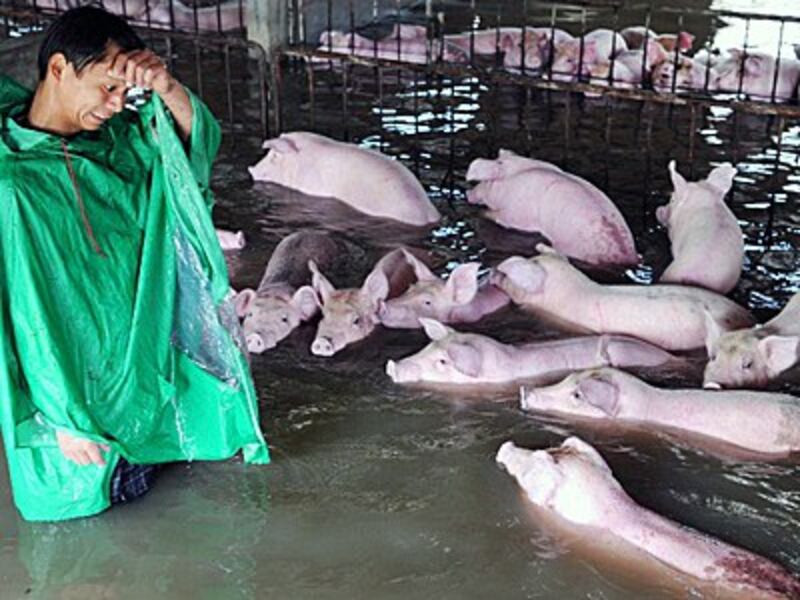Huge rainstorms in China's Yangtze river basin have left more than 120 people are dead and more than 40 missing, with more than a million forced out of their homes by widespread flooding, state media reported.
The official Xinhua news agency estimated that more than 38 billion yuan (U.S. $5 billion) worth of damage has been done, as the region is battered by particularly heavy summer rains.
Officials have warned that a strong El Nino effect this year will increase the risk of flooding in the Yangtze and Huai river basins, recalling the 1998 Yangtze flood disaster that left more than 4,000 people dead.
"There are huge downpours every day," a resident of Qingshan district in the central Yangtze conurbation of Wuhan told RFA. "Here in Qingshan, all the land around is underwater, and the flooding is even worse further out in the suburbs."
She said the mass transit railway has been forced to stop running.
"The water is ankle deep here, but it's much deeper in other areas," the resident said. "It said on the news that there was a backflow [up a tributary or canal] from the Yangtze, where waters levels are very high, and the water had nowhere else to go."
Red flood alert
Hu Guohong, a resident of a district of Wuhan next to the Yangtze river said the city is now on red flood alert, with widespread disruption to traffic.
"There was water everywhere this morning when I went out to my car, and everything was blocked up, so there was nowhere for it to go," Hu said. "There is flooding everywhere."
He said the water had reached around a meter in depth in some areas, and higher in others, to judge from photos posted to social media.
"[We haven't left our home in] three days now, and there's no public transportation anyway," Hu said.
Photos posted to social media showed rescue crews battling fast-flowing floodwaters to rescue residents, and houses only half visible under broad expanses of muddy water.
Hu said drinking water in the city is now starting to look muddy in color, suggesting floodwaters may have contaminated supplies.
Hu said Premier Li Keqiang's visit to "direct disaster operations" was unlikely to make much difference.
"What can they do? It's already happened," he said. "It's pointless just to tinker around on the edges now; they should have done it properly beforehand."

Government should take responsibility
Xu Chuntang, a resident of Wuhan's Qiaokou district, said she also believes the government is responsible.
"They should take responsibility, because we have floods every year, and what are they doing to prevent it?" she said.
"They should take it more seriously; they don't take enough responsibility," Xu said.
An official who answered the phone at the Wuhan municipal government offices said the waters had receded slightly on Wednesday.
"The water is a bit lower today, and [public transportation] should gradually return to normal now," the official said.
"Most primary and secondary schools are already on vacation, and the kindergartens have shut down [because of the floods]," he said.
Meanwhile, severe flooding has also left much of the eastern province of Anhui under water, according to residents and social media users.
Activist Qian Jin, who lives in Anhui's Bengbu city, said water levels on the nearby Huaihe river are currently very high, with flooding in Xuancheng and Huangshan.
"It's pretty serious over there, and a lot of towns and villages are completely underwater," Qian said. "It is a pretty big disaster, and the TV is singing the praises of the troops who have gone to help."
"But there aren't very many reports about the aftermath of the disaster, nor about how many people have been drowned," he said.
Reported by Wong Lok-to for RFA's Cantonese Service, and by Yang Fan for the Mandarin Service. Translated and written in English by Luisetta Mudie.
